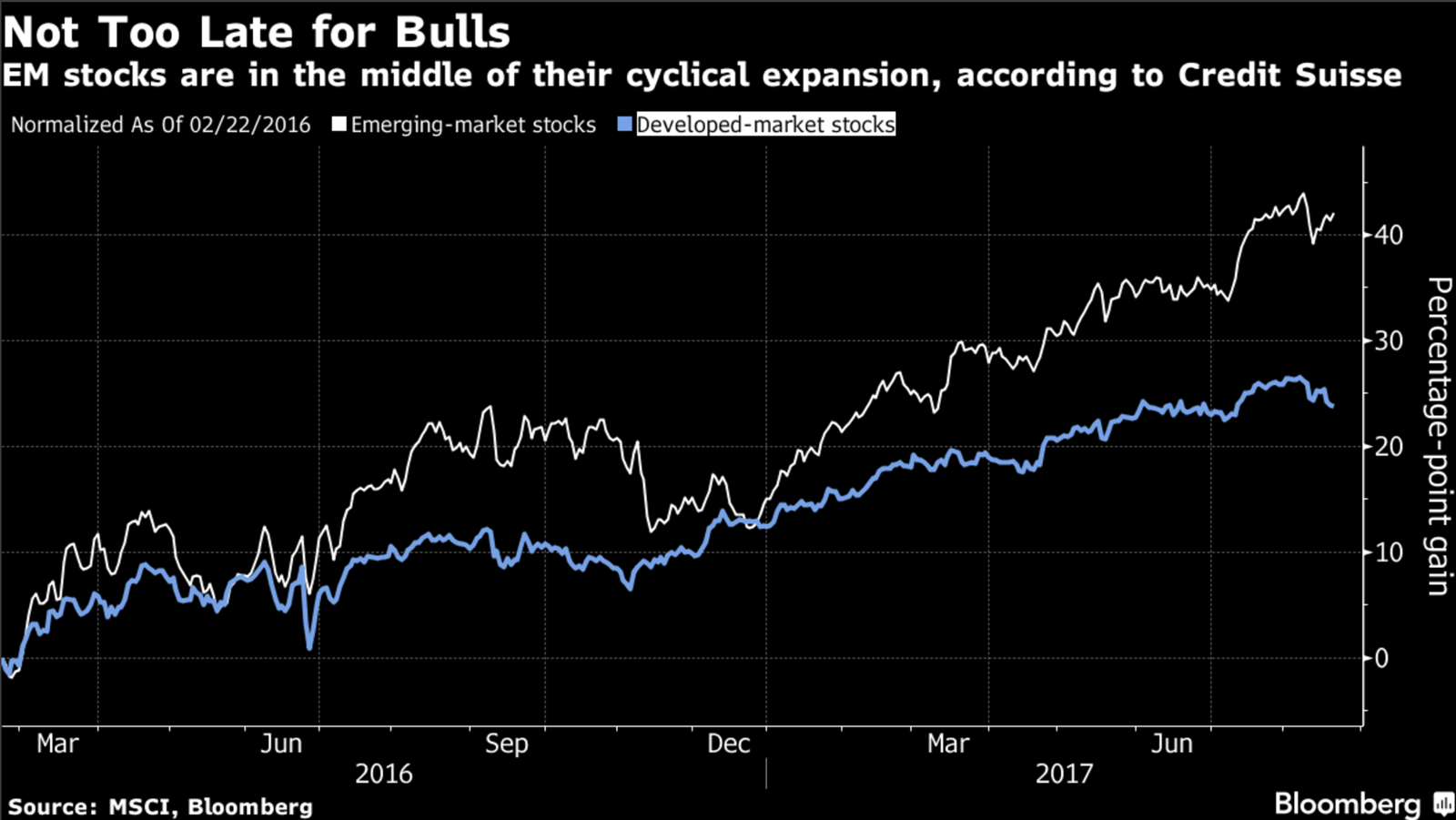The Sky Is Not Falling: The Tuesday, 22 August 2017 Edition
Counterpoint #1: “You Haven’t Missed the Emerging-Market Party, Credit Suisse Says,” from Bloomberg, which argues that EM stocks are in the middle of a cyclical expansion. “From economic expansion to corporate earnings and capital expenditure, everything points to [EM equities] overtaking developed peers through the middle of next year.”
Counterpoint #2: Steve Johnson writes for the Financial Times that the so-called Fragile Five EM of India, Brazil, Turkey, South Africa and Indonesia are in reasonable shape to dodge a repeat of the 2013 “taper tantrum” that swamped EM. Unlike their more developed counterparts, EM assets are not overvalued. Concerns do remain when looking at EM debt, which jumped 184% of GDP, according to estimates from Renaissance Capital. And Egypt? Well, we make the list of EM and FM countries RenCap sees as more vulnerable since 2013, alongside United Arab Emirates, Qatar, Bahrain and Oman
FT columnists would also be very happy if US markets ran into a spell of trouble: Witness offerings pieces declaring that The Donald’s “struggling presidency is weighing on vulnerable equity and corporate bond markets” and on how former Trump Trade bull Ray Dalio is “wary as S&P 500 sets course for worst month since before election.”
Now, if you REALLY want to worry this morning, go read the FT’s latest piece in its series on the global financial crisis a decade later, which marshalls a basket of graphs to argue that from stocks, real estate and traditional “SWAG” value stores to bonds and bitcoin, many assets look overpriced — at the same time as we face threats from ballooning debt. The key takeaway: “Asset bubbles are not necessarily damaging. If stocks shoot up and shoot down again, people may have lost money they only ever held on paper. The critical question is the level of debt. If collapsing bubbles inflict losses on indebted investors, or if cheap credit leads to excessive speculation, disaster can result. In 2009, everyone expected a decade of deleveraging. It has not happened. In a number of markets, there are signs of debt-funded speculation, and of over-indebtedness.”
